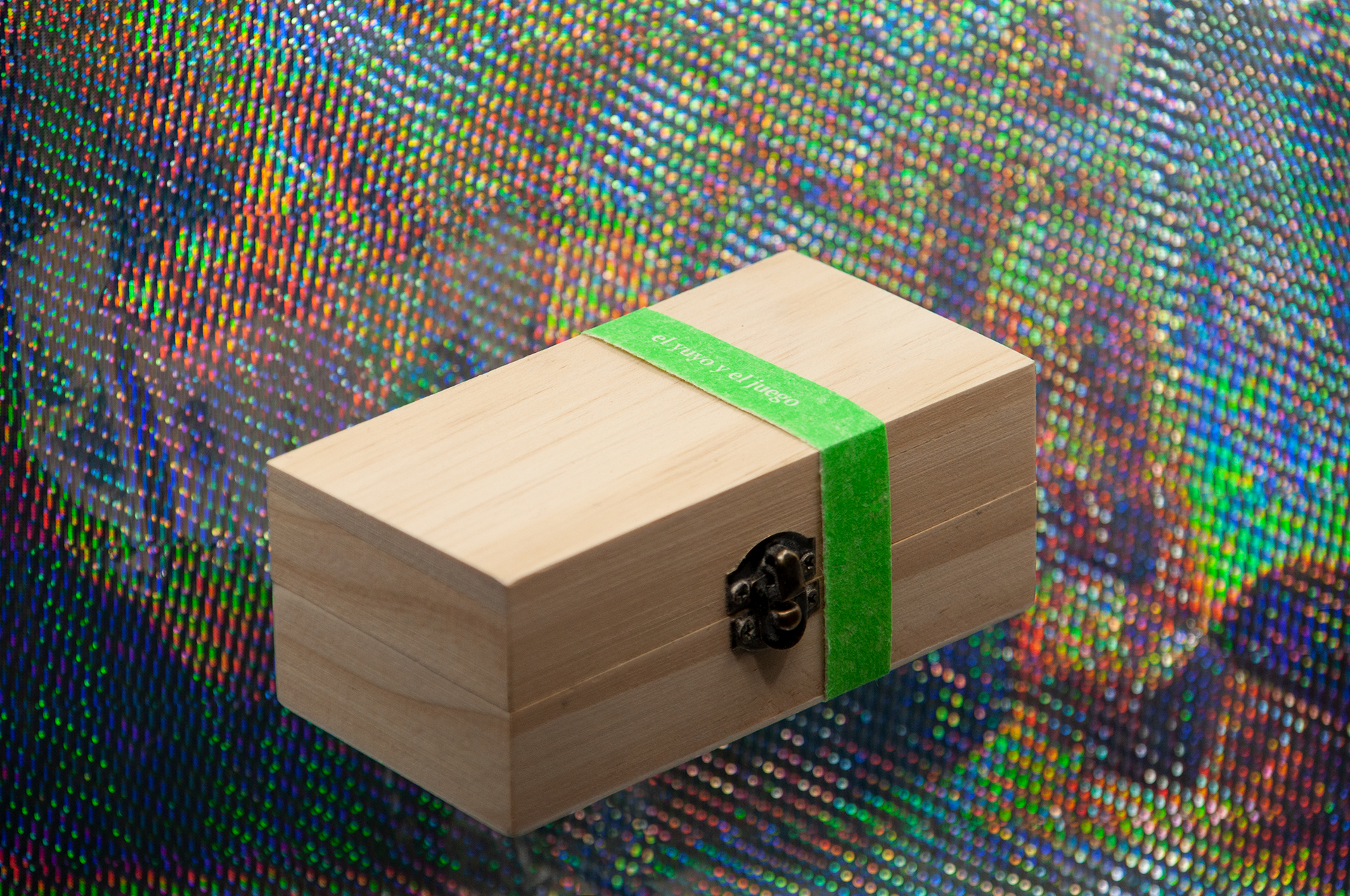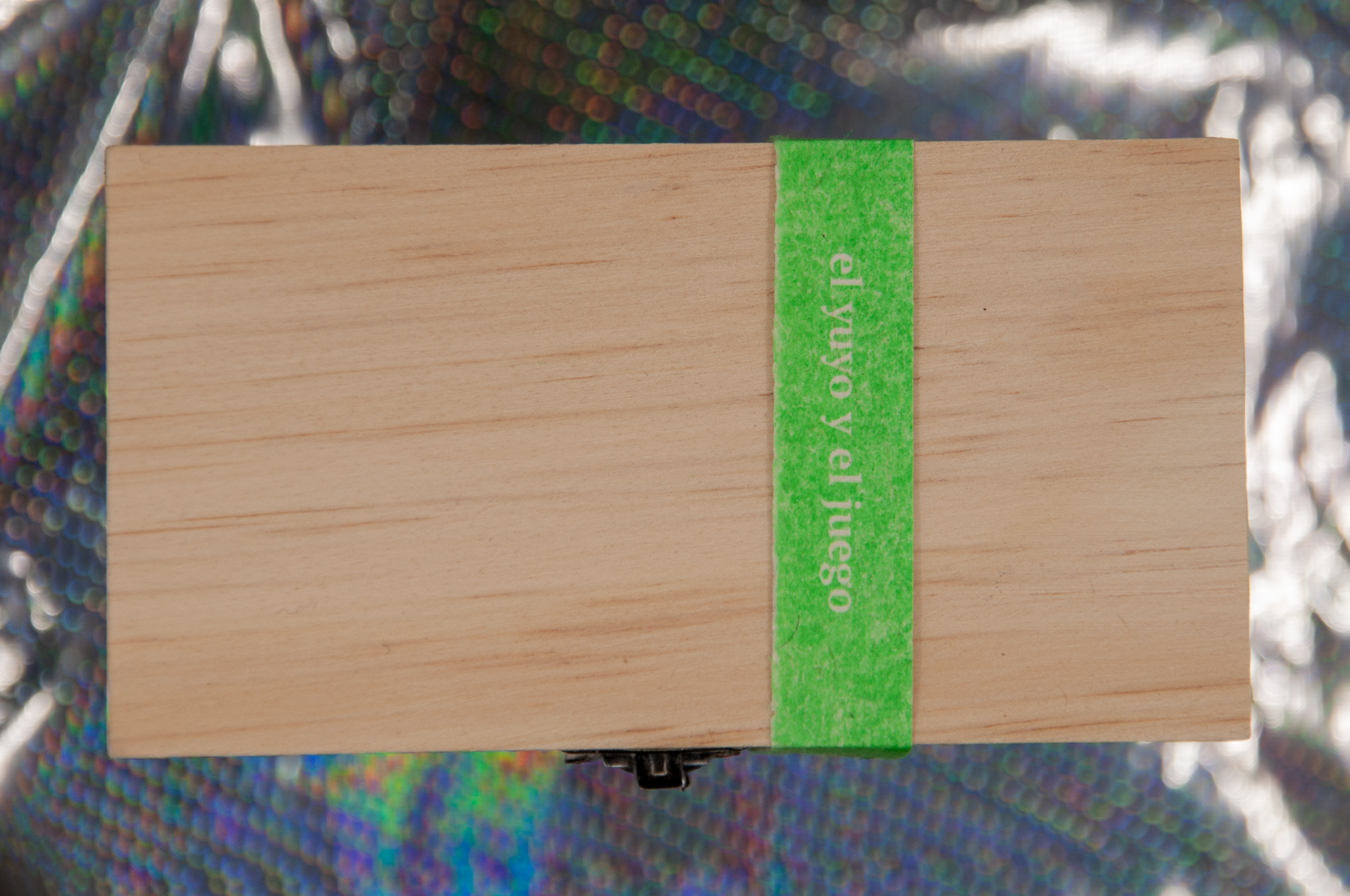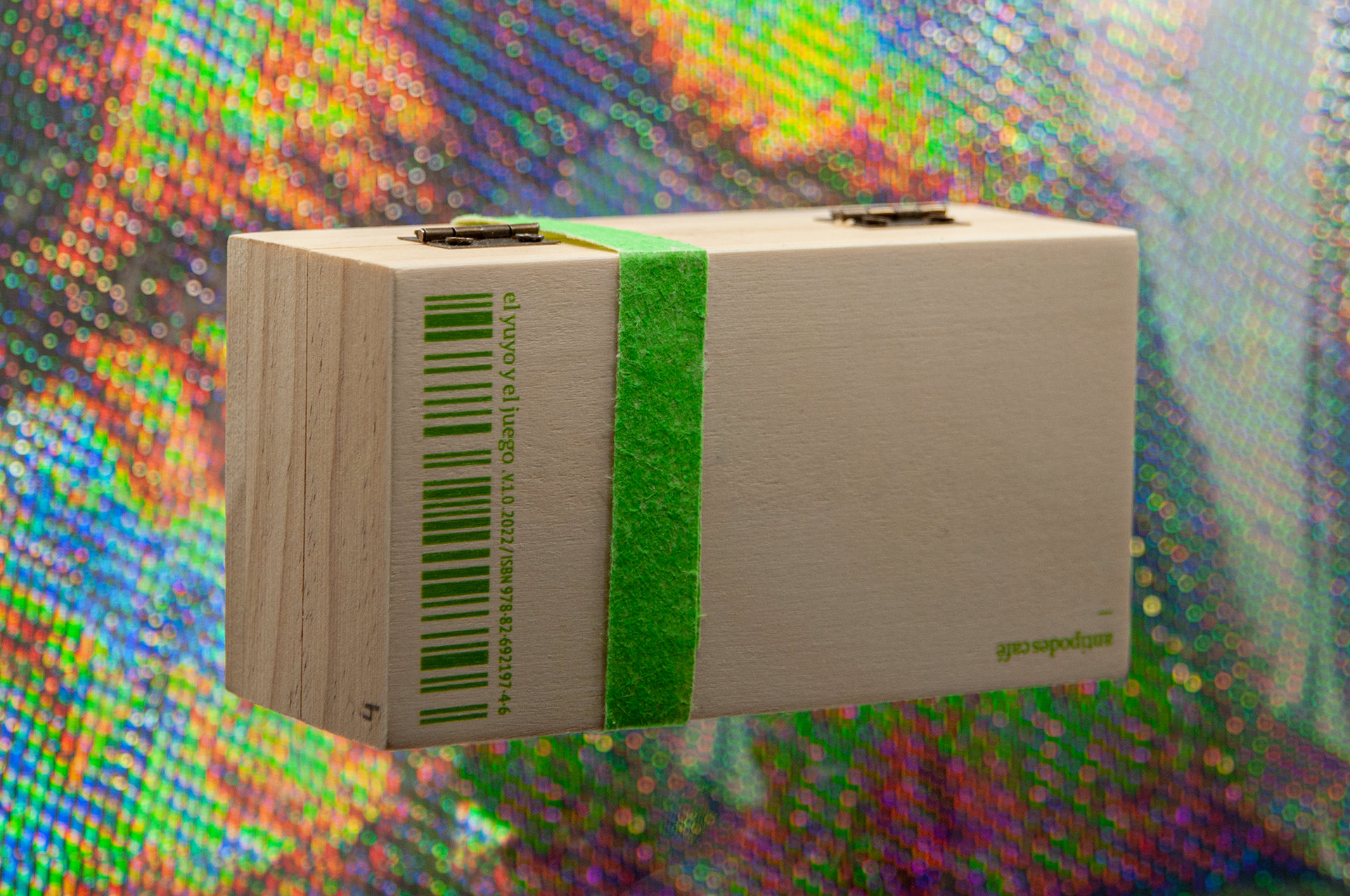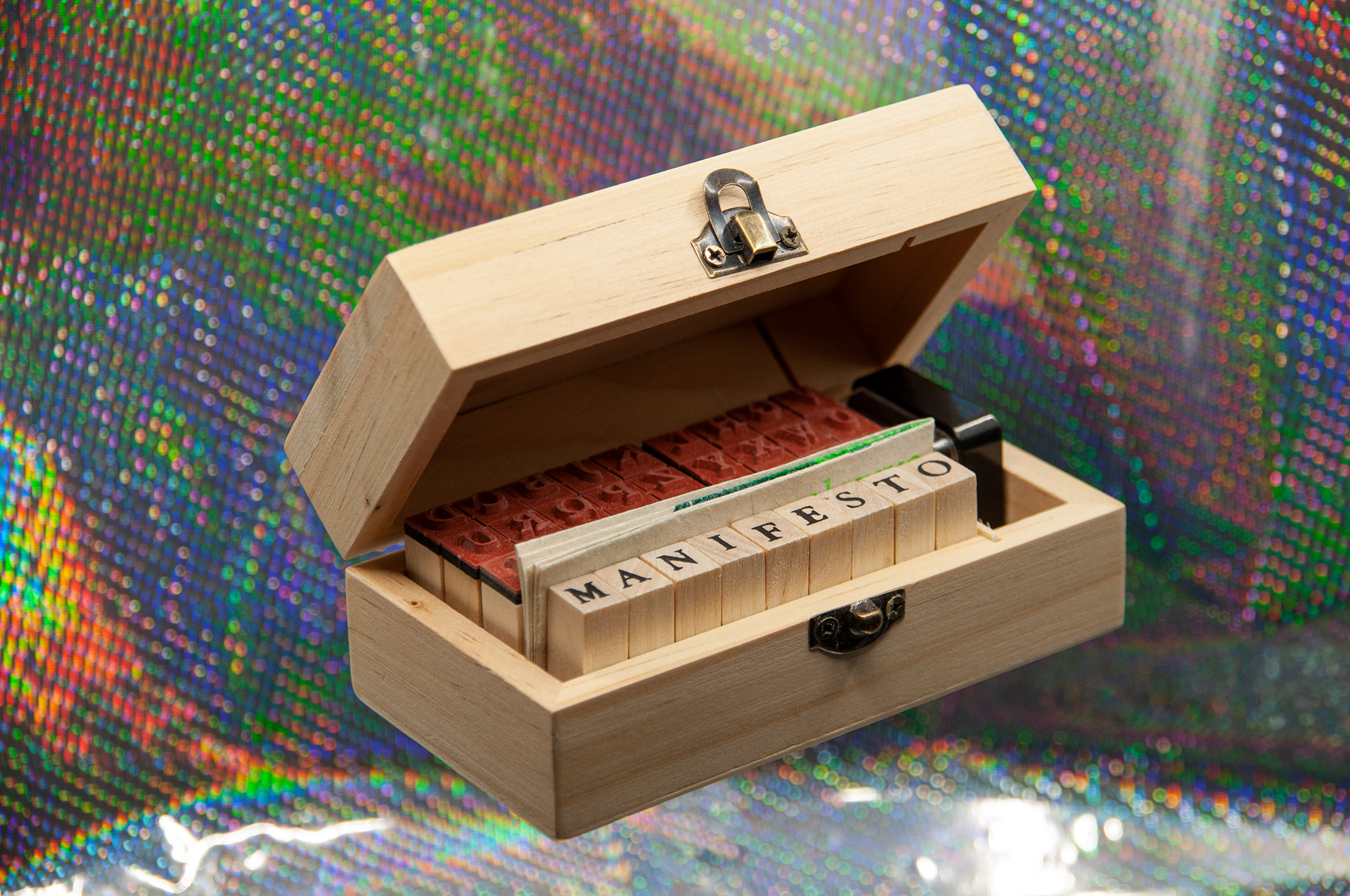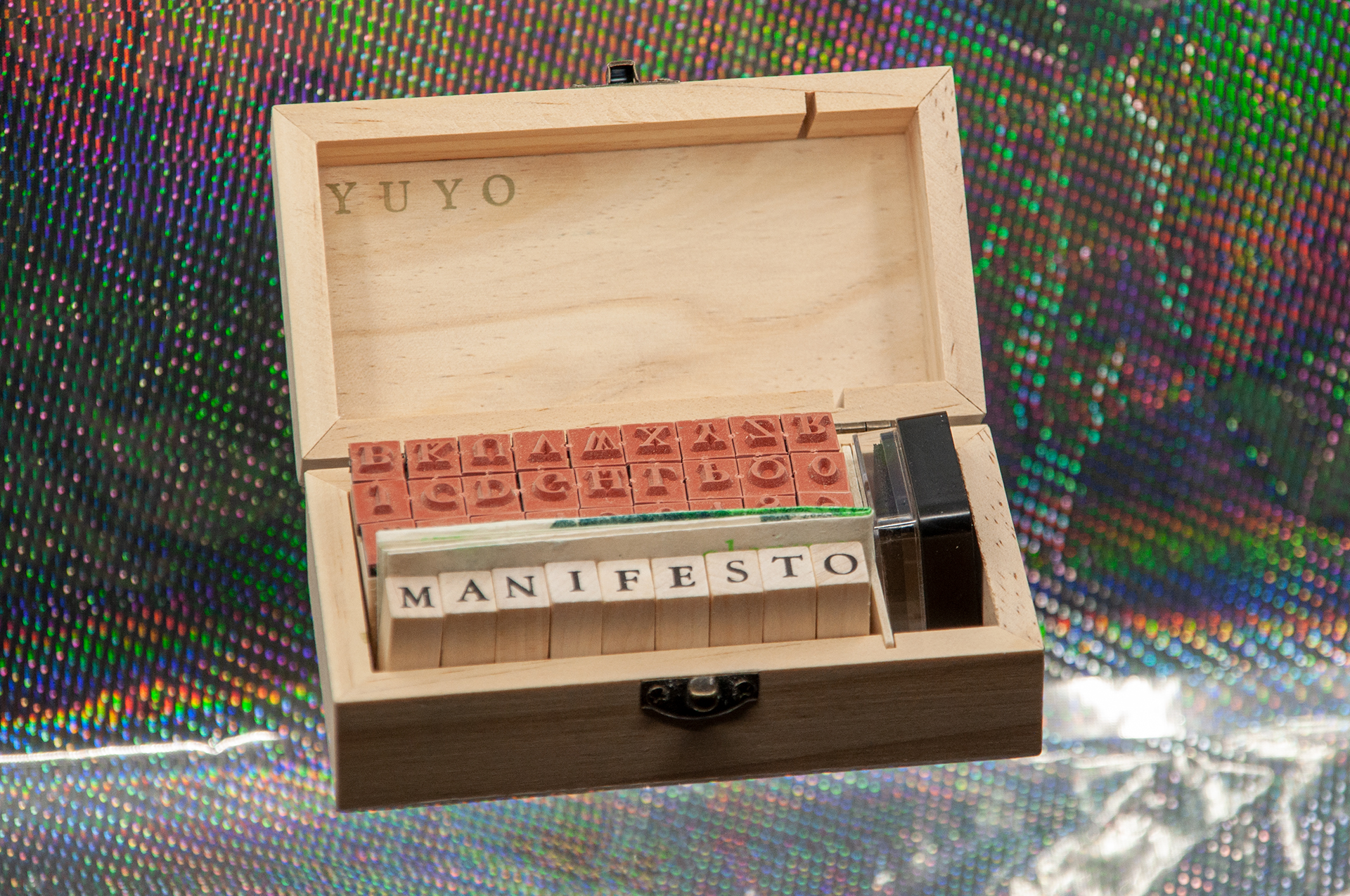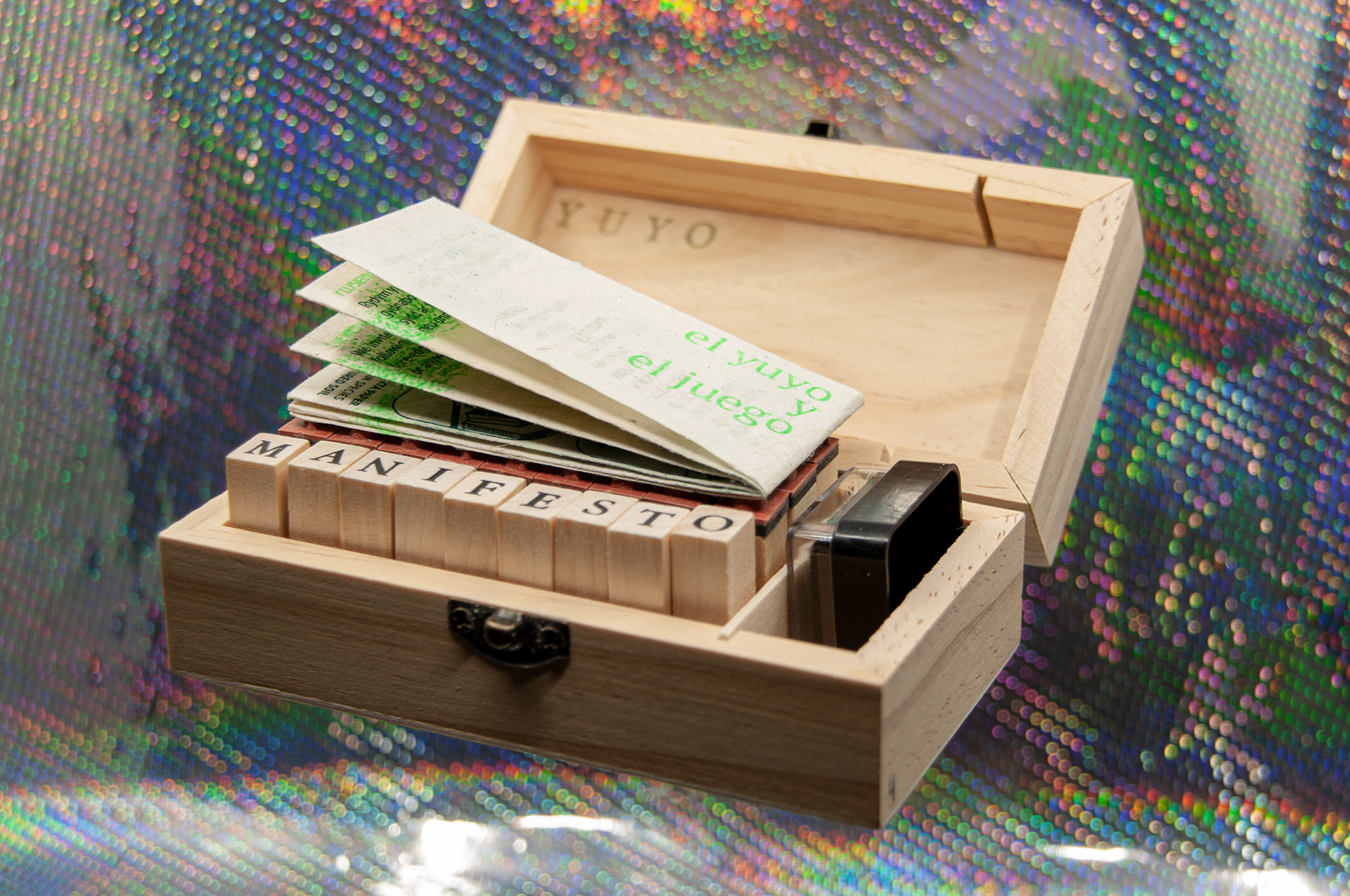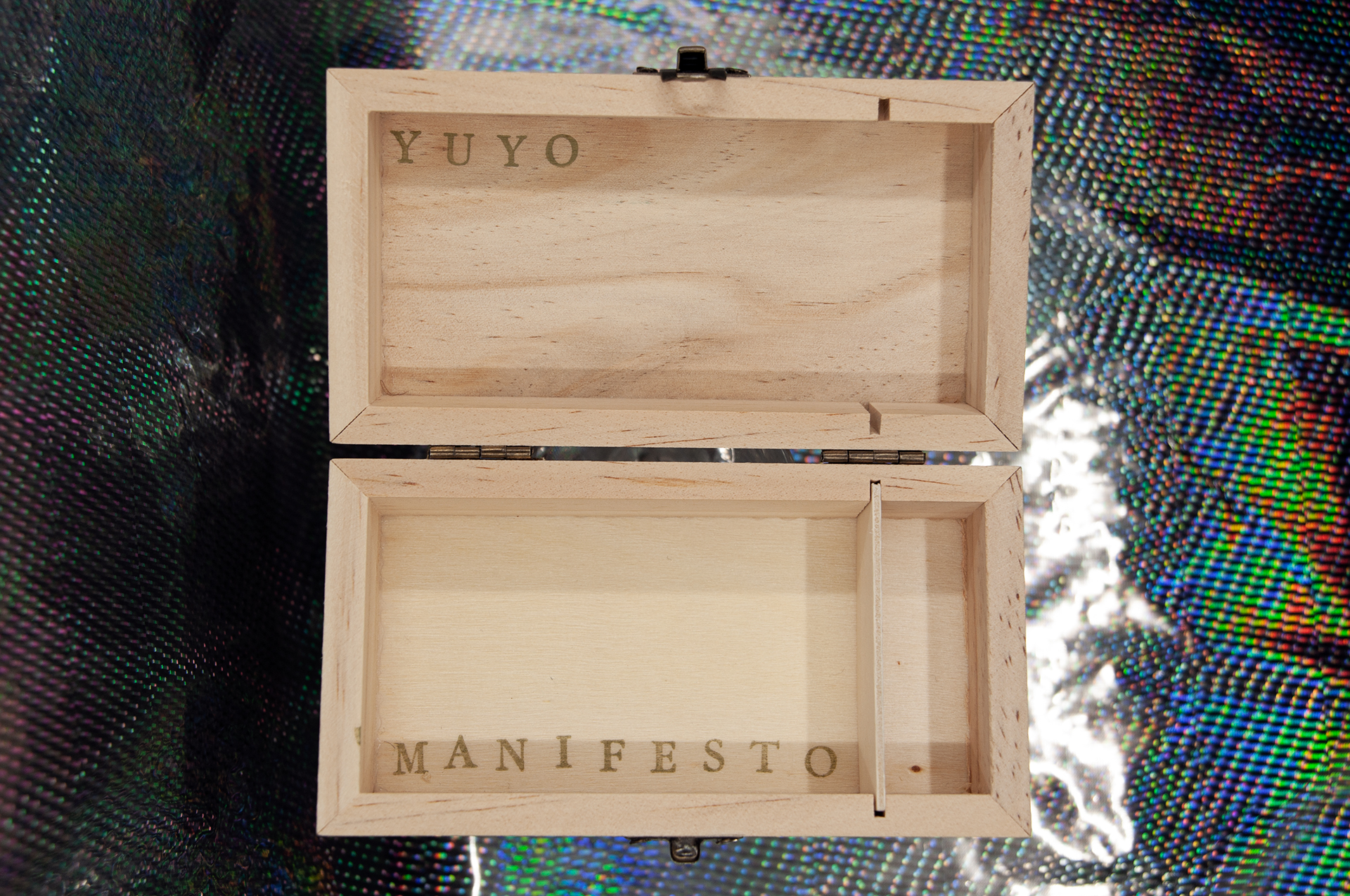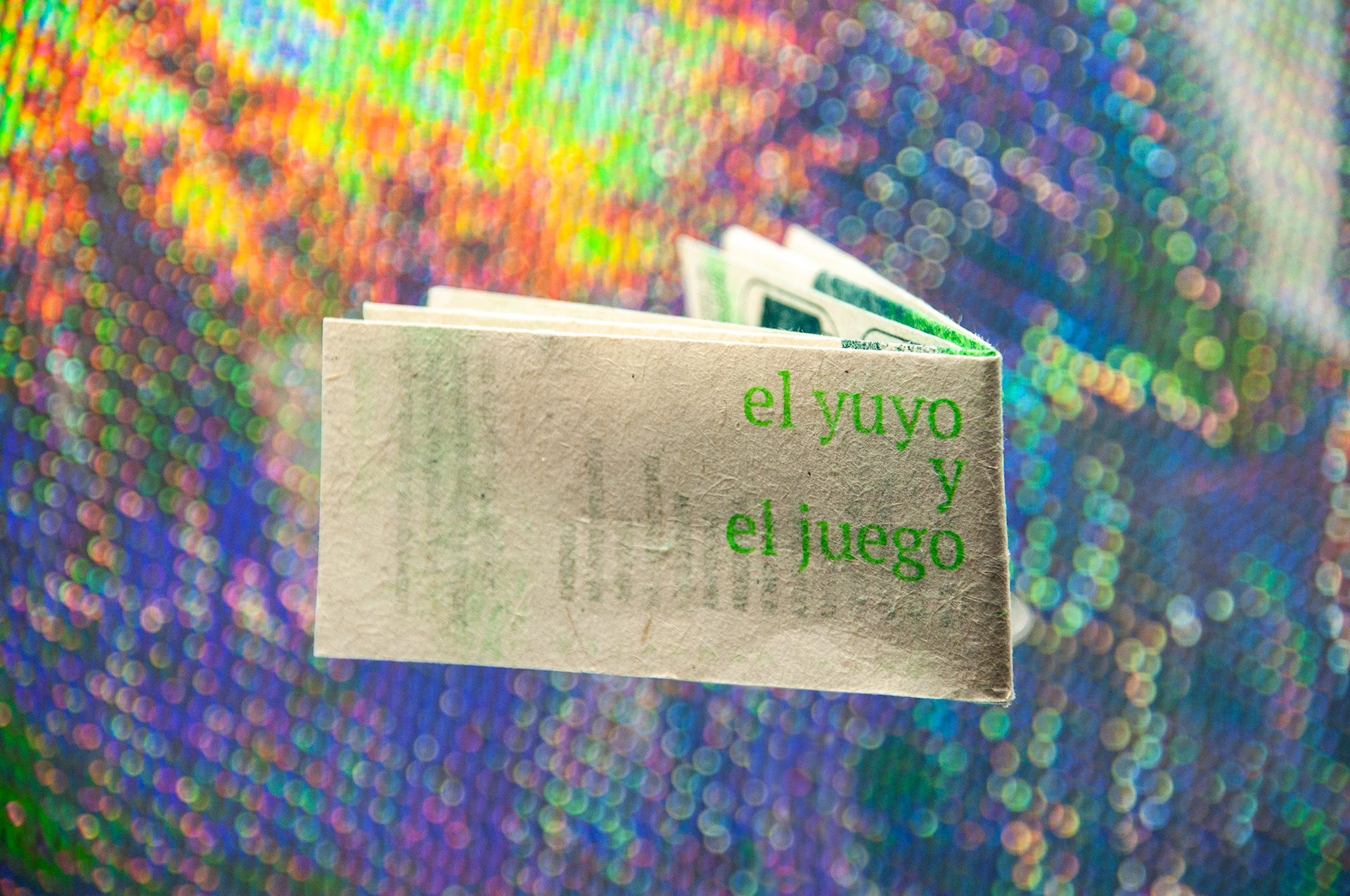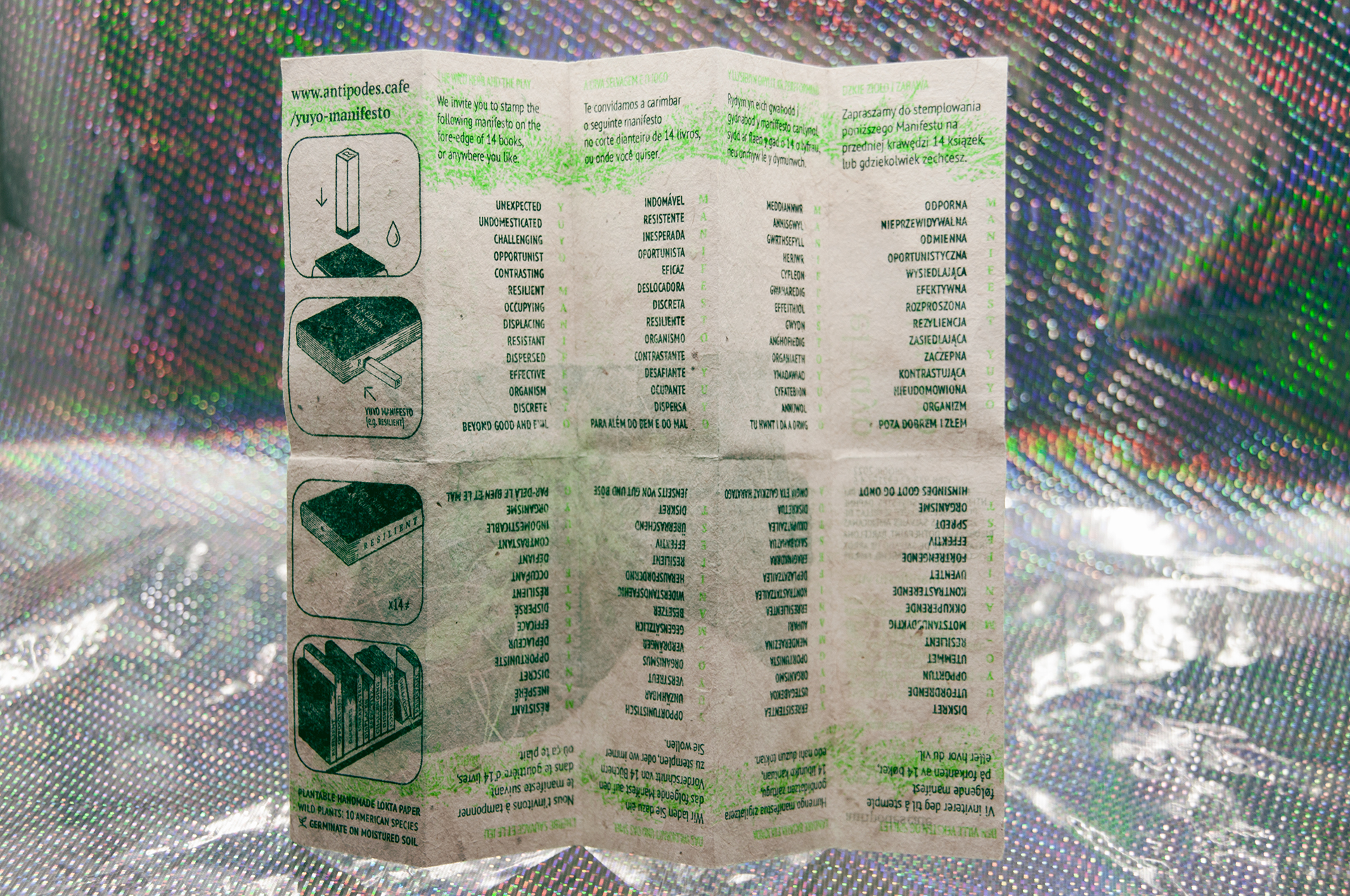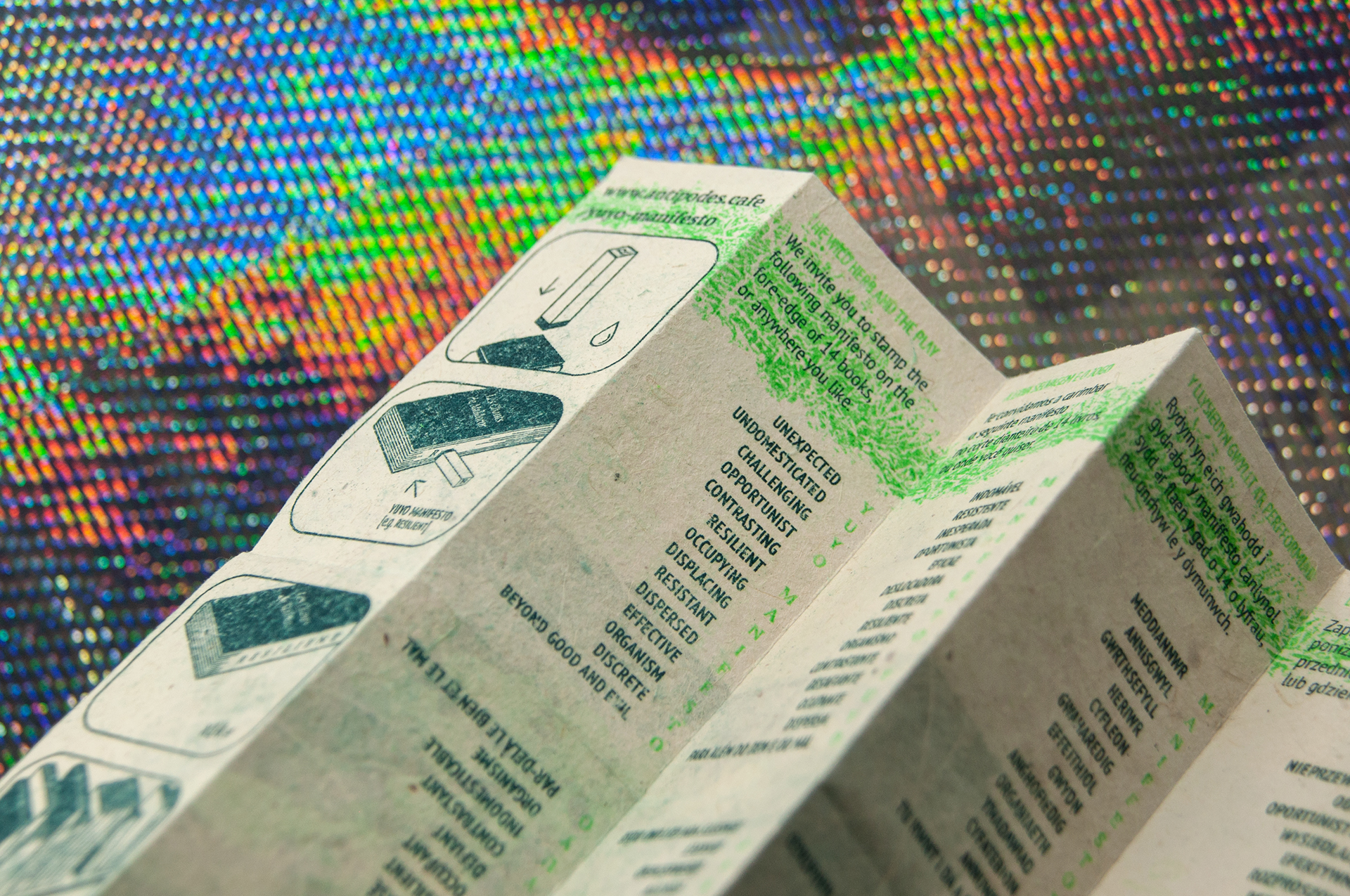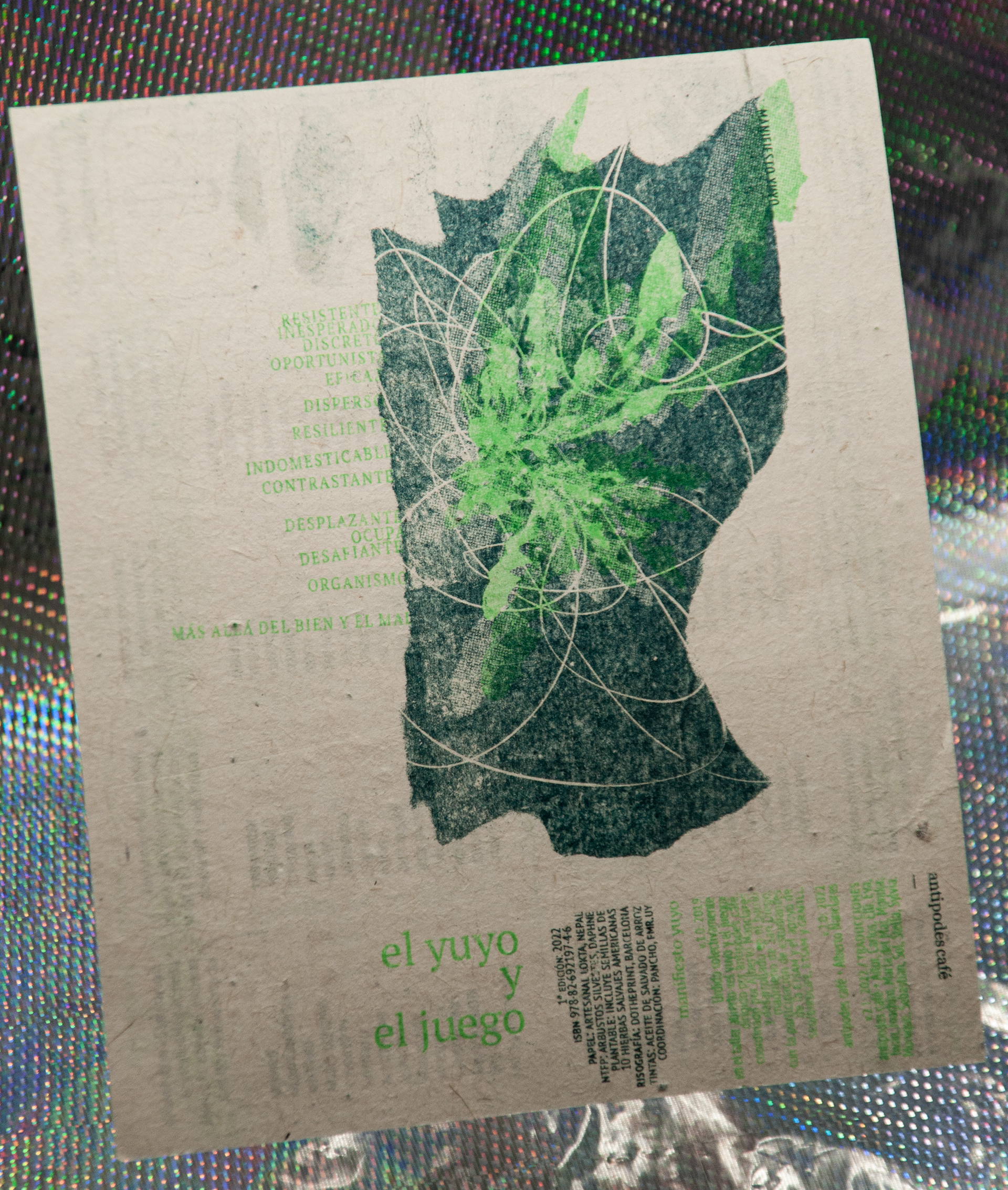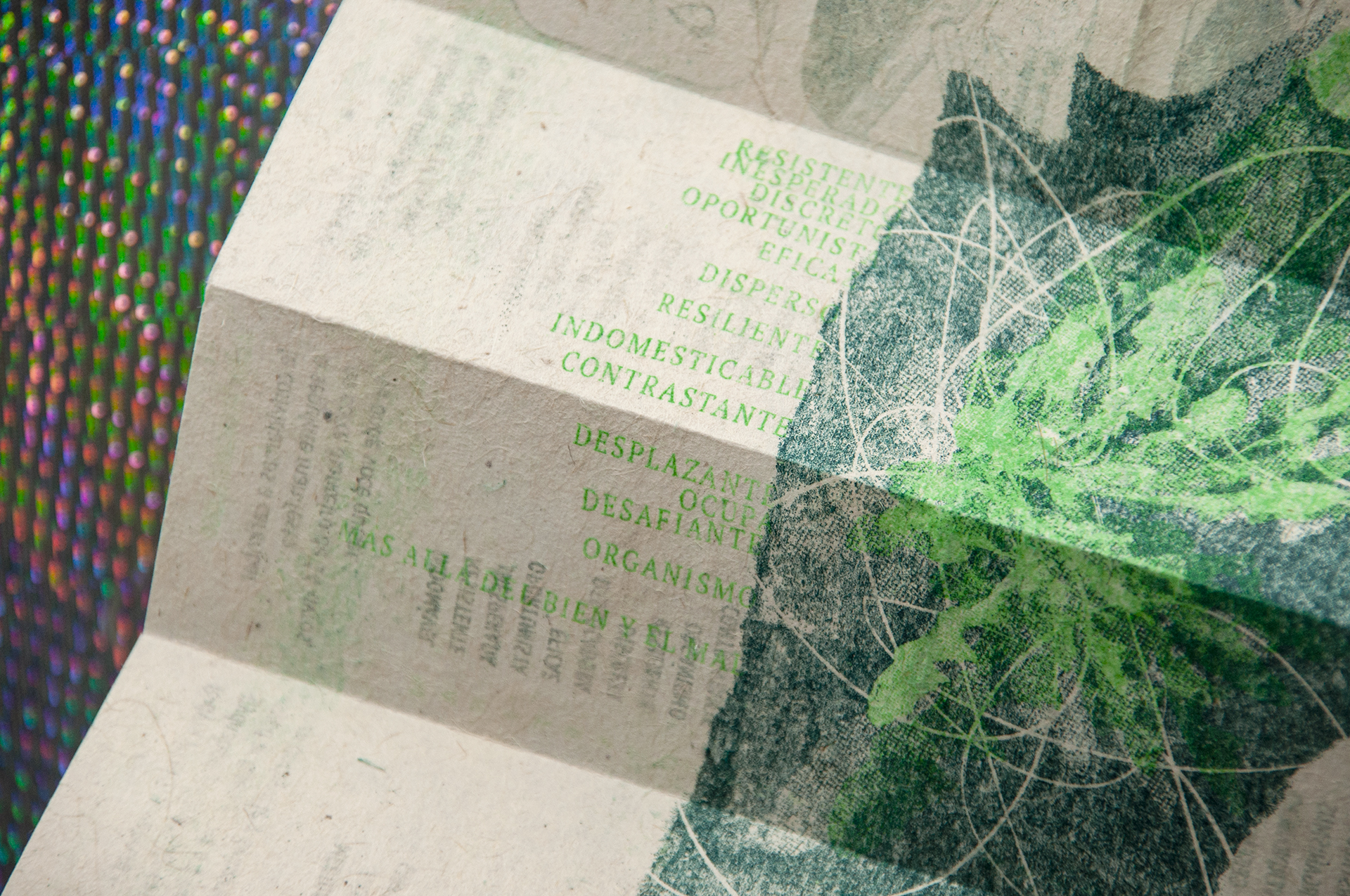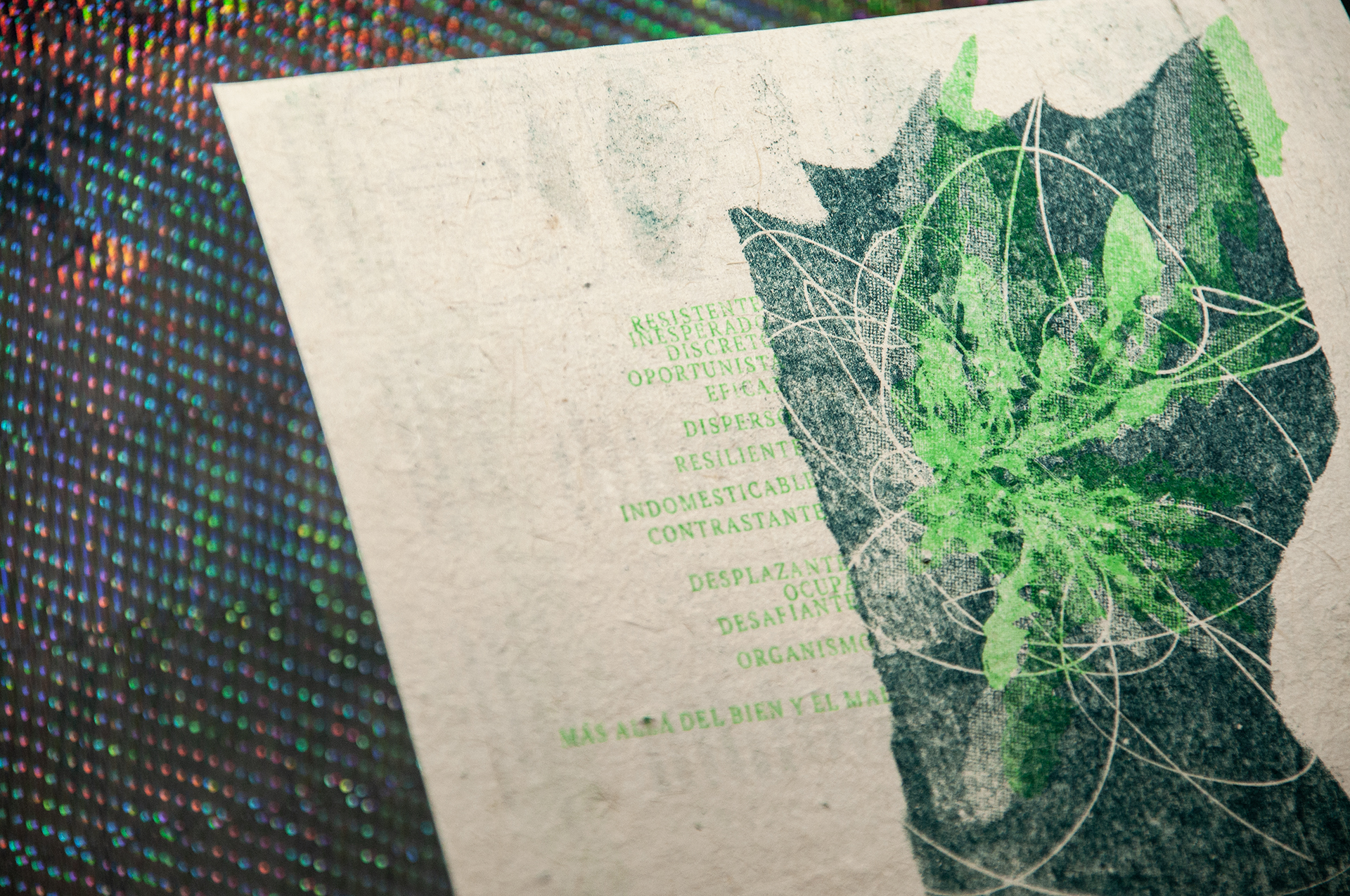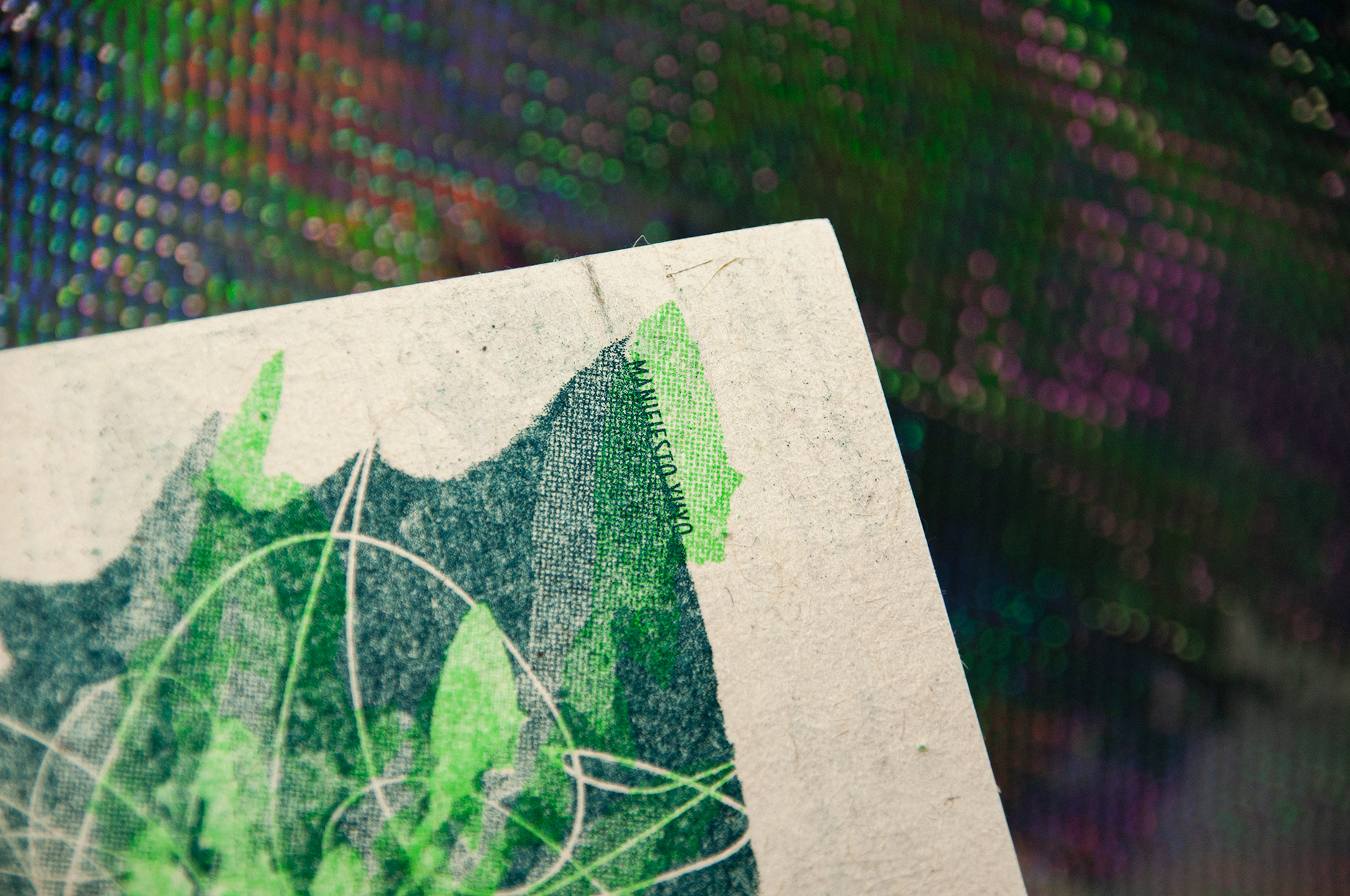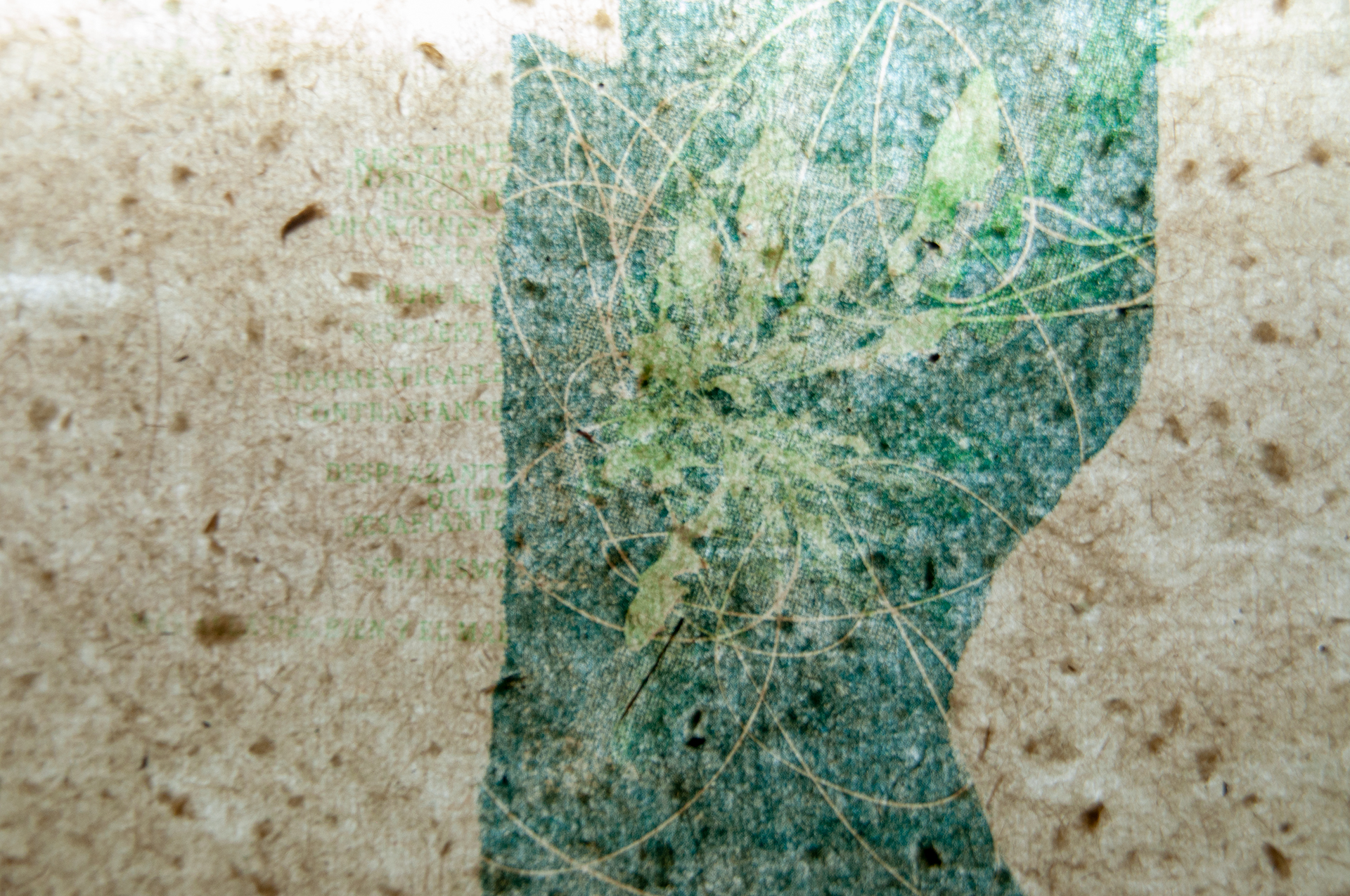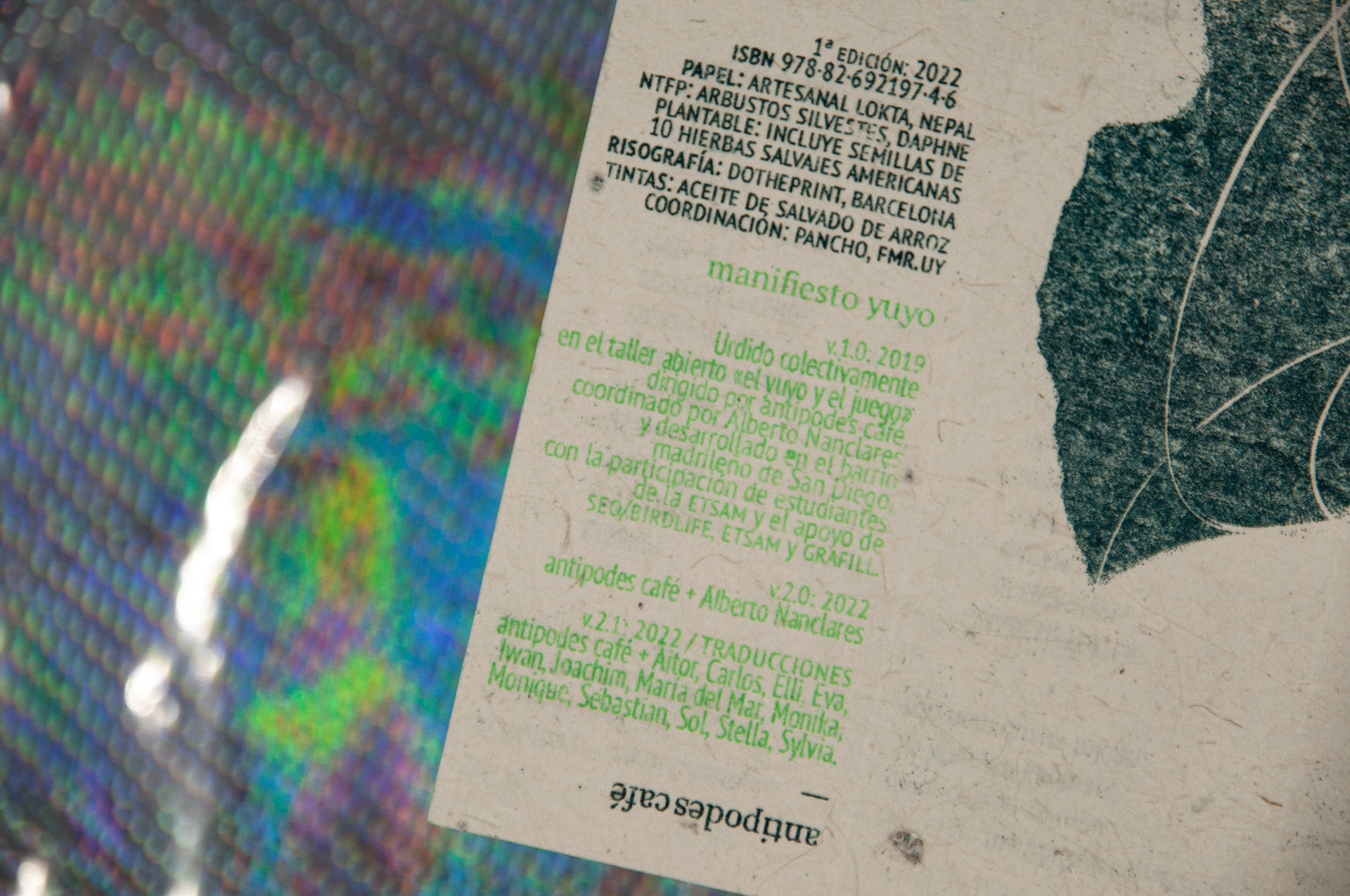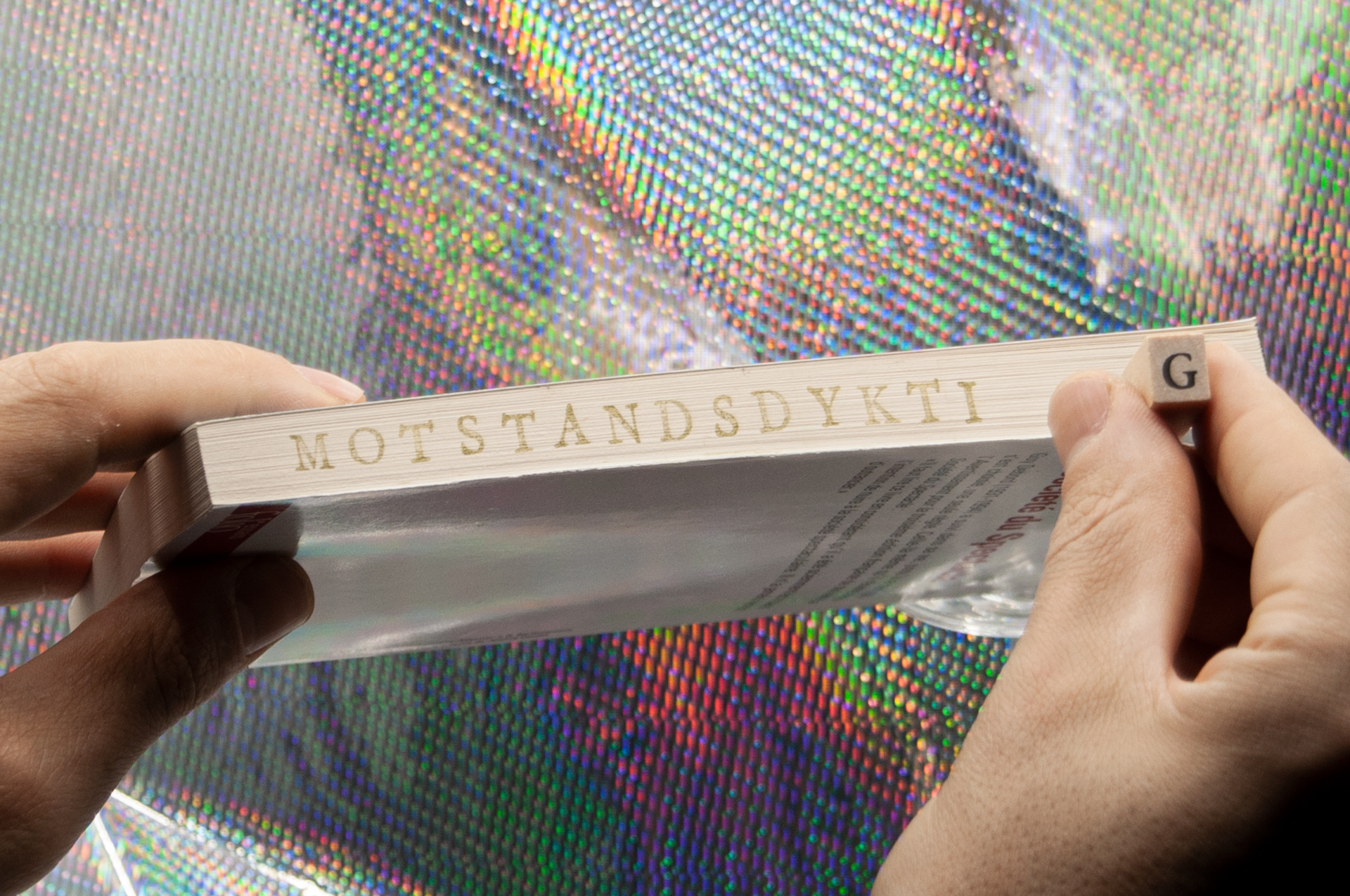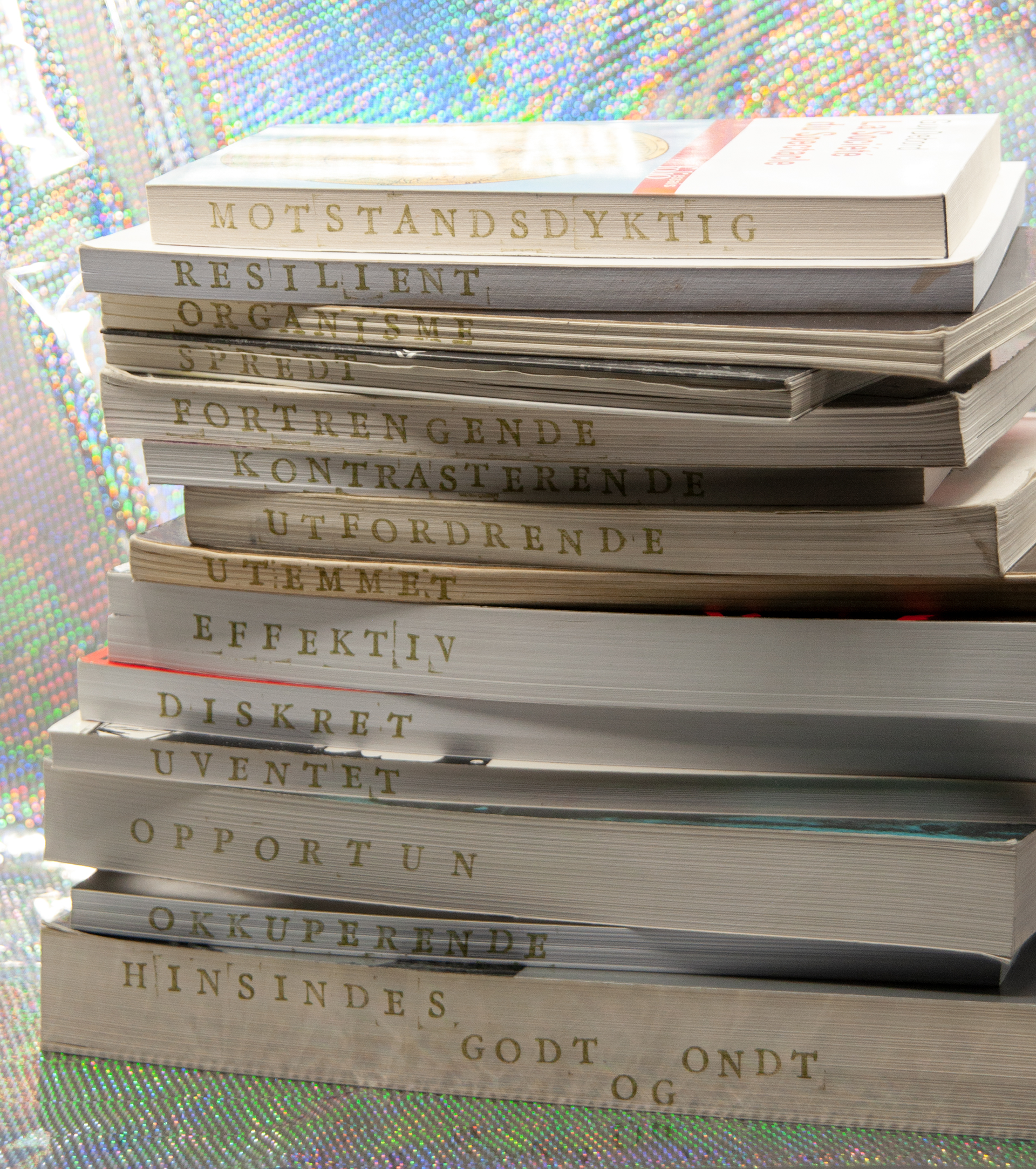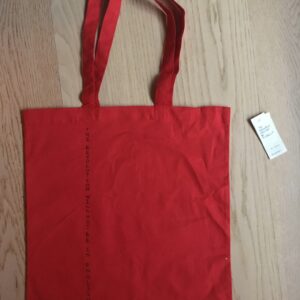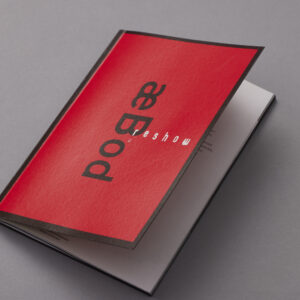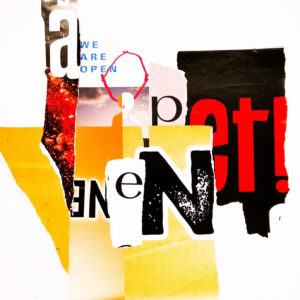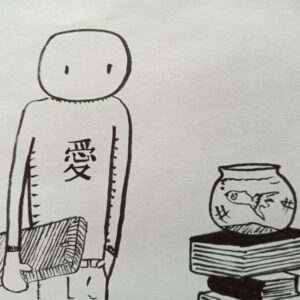kr2.801
- ISBN 978·82·692197·4·6
- 1st edition
- Numbered copies (handwritten)
- Wooden box:
- printed in NTM, Oslo.
- “sealed” with a lokta paper ribbon
- Set of stamps (rubber and wood):
- alphabet
- Chinese ink pad (wood soot)
- Pamphlet:
- Plantable lokta paper.
- NTFP.
- Embedded with several seeds (10 wild flowering plants).
- Risograph (two green inks / rice bran oil).
- Printed in Do The Print, Barcelona.
- Double sided print, folded in 10 parts (84 x 39 mm).
- «yuyo manifesto»: Spanish, English, French, Welsh, Portuguese, German, Basque, Polish and Norwegian.
- Plantable lokta paper.
- Oslo, 2022.
THANKS
• Alberto Nanclares
• Francisco Magnone
• Austeja Tamaliunaite
• Sebastin Hungerer, Norsk Teknisk Museum.
• Translations: Aitor, Carlos, Elli, Eva, Iwan, Joachim, María del Mar, Monika, Monique, Sebastian, Sol, Stella and Sylvia.
DONATION
This support will help us to continue exploring on everyday life and as a requite you will get one of these boxes.
The number 2801 NOK represents no more nor less than a tithe of a monthly salary based in the minimum wage in Norway for an unskilled workers without any experience of construction work (Arbeidstilsynet, 2021.07)
IN MEMORIAM
• Sylvia Battaglino 🖤
39 in stock
Description
Celebrating its decennial, antipodes café presents «el yuyo y el juego»
With a deliberately artless fashion, this publication intertwines handcrafted and industrial materials, production, and printing processes to introduce the ‘yuyo manifesto’ in form and content. The collaboratively concocted list of attributes of the so-called unwanted plants defining this pronouncement for social criticism lays bare strategic concepts found across antipodes café’s oeuvre and modus operandi. Featured in languages of places and people related to the organization in the past decade, this puzzling edition invites to apperceive it in its appropriation. Following those instructions and using the included tools, one can put the manifesto into action by both stamping it on the fore edge of several books and/or by germinating it. The pamphlet was printed using a Risograph with two green inks based on non-edible rice bran oil on Nepalese wild-crafted artisan paper made from wild Daphne shrubs and containing seeds from ten wild flowering plants from the Americas (Antirrhinum, Petunia, Penstemon, Melampodium leucanthum, Monarda, Papaveraceae, Digitalis purpurea, Chamaemelum nobile, Dianthus repens and weed silene) ▪
Additional information
| Weight | 0,170 kg |
|---|---|
| Dimensions | 6 × 12 × 5 cm |
| originals | not signed, numbered |

